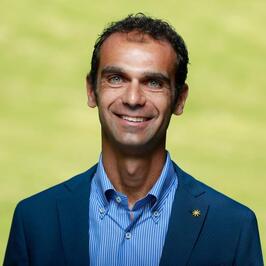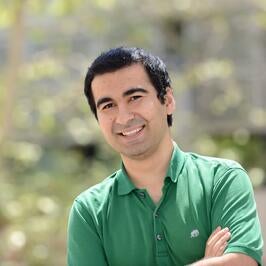
Artificial intelligence that is used in our smartphones, social media and self-driving cars continues to become increasingly sophisticated, but this technology is not without its drawbacks. The missing puzzle piece remains: how can machine learning of computers most accurately mirror biological learning of living things?
Not much is currently known about this “biological learning,” or how animals and humans can quickly learn and make decisions based on previous experiences. To better understand this, a team of researchers is investigating how neural circuits in the brain acquire and perform complex functions.

Two engineers at the Marlan and Rosemary Bourns College of Engineering (BCOE), Fabio Pasqualetti, Professor of mechanical engineering, and Samet Oymak, Assistant Professor of electrical and computer engineering, serve as co-principal investigators on the team lead by the McKelvey School of Engineering at Washington University in St. Louis.
The project to study brain dynamics and reinforcement learning is funded by a highly competitive three-year, $3.75 million Multidisciplinary University Research Initiative (MURI) grant from the U.S. Army Combat Capabilities Development Command’s Army Research Laboratory. Approximately $1.1 million of that amount will support work at the University of California, Riverside.
As envisioned by the principal investigators and according to a news article from the McKelvey School of Engineering, “the research team will look at the interactions between neurons and astrocytes, a type of glial cell, to see if they form two levels of a network that enables large-scale learning. Combining engineering, machine learning, neurophysiology, behavioral testing and genetics, the team will develop a novel framework that links these neuro-glial dynamics to high-level learning functions through computational modeling and analysis approaches. They will then examine and clarify these dynamics in animal models.”

At UCR, Pasqualetti brings expertise in the design of network-theoretic theories and tools for the study of brain processes from imaging data and leads the project’s Task 2: Model, Analyze and Optimize Neuro-glial Dynamics for Large-scale Learning.
Oymak brings expertise in the conjunction of reinforcement learning, optimization and statistics. Oymak will work on Task 1 to "Establish Non-Markovian Behavioral Paradigms for Brain and Machines" and Task 2b and 3b for "Top-down construction and validation of Glial Hierarchical Dynamics".
UC Riverside’s research will be conducted at one of BCOE’s nine research centers: the Center for Robotics and Intelligent Systems, a hub for research in computer vision, machine learning and robotics.